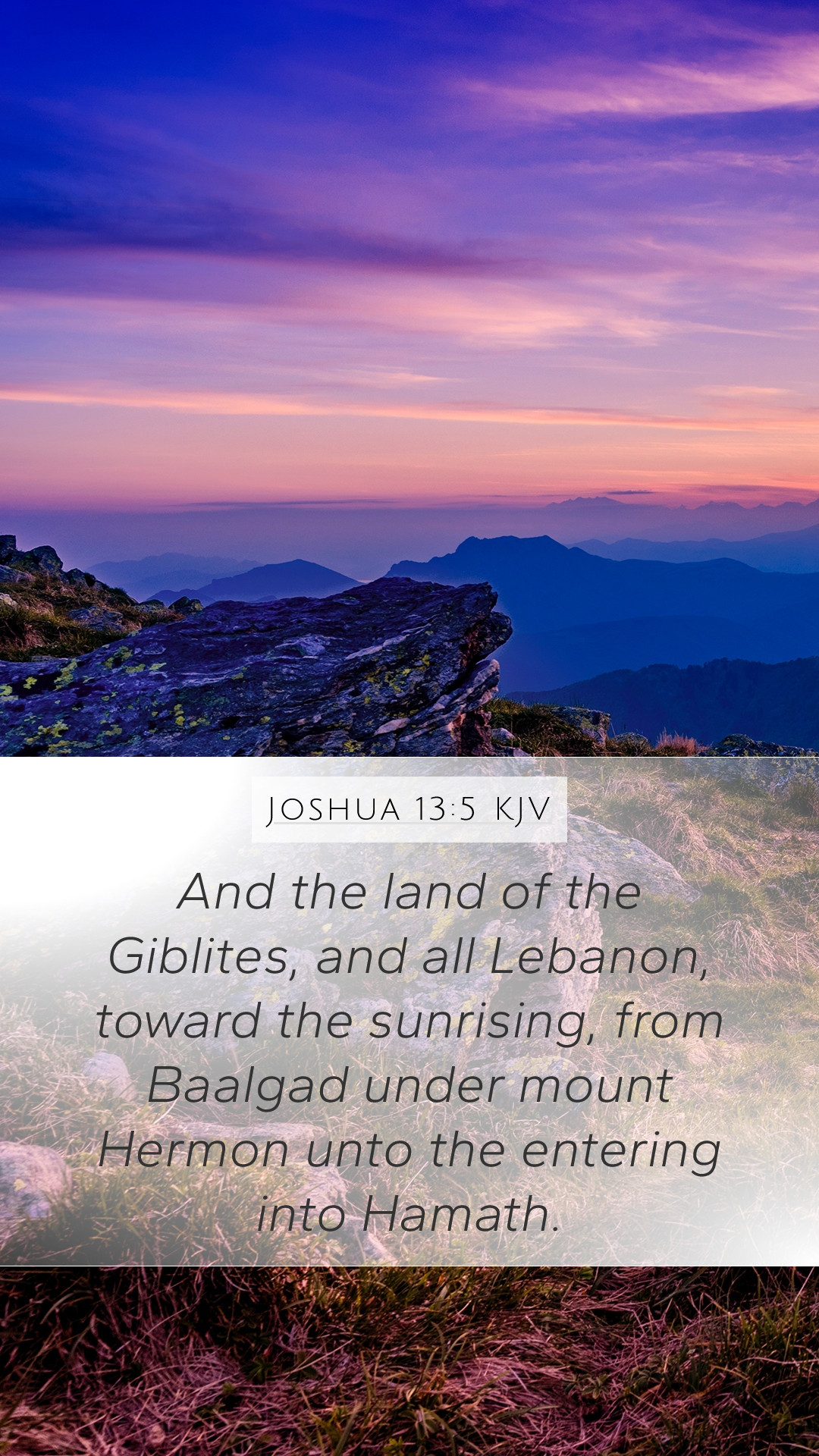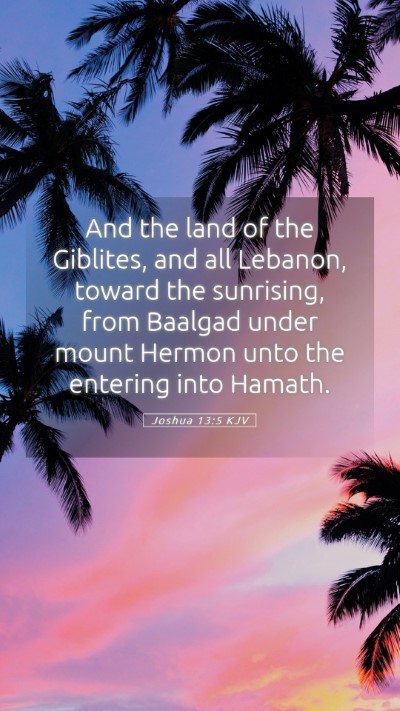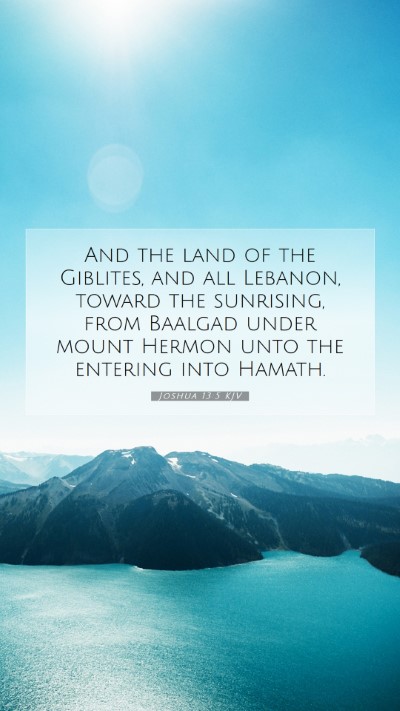Bible Verse Commentary: Joshua 13:5
In Joshua 13:5, we delve into the intricate details surrounding the distribution of the Promised Land among the tribes of Israel. This verse provides a glimpse into the boundaries and the lands allotted to the half-tribe of Manasseh. Understanding this scripture requires an analysis of both historical context and spiritual significance, making it essential for anyone seeking insights into Bible verse meanings and interpretations.
Context and Background
This verse is set within the broader narrative of the Israelite conquest of Canaan. After years of wandering in the wilderness, Joshua, as the leader appointed by God, is tasked with the distribution of land to the tribes of Israel. The land spoken of here is part of the conquest and denotes God fulfilling His promise to the descendants of Abraham, Isaac, and Jacob.
Verse Interpretation
- Geographical Boundaries: The specific regions mentioned highlight God's precise promise to the Israelites. In this case, it emphasizes the importance of land and territorial heritage in the life of the Israelites.
- Half-Tribe of Manasseh: This reference signifies the unique inheritance of the Manasseh tribe, which was split between the eastern and western sides of the Jordan River, illustrating the diversity in God’s blessings and allocations.
- Spiritual Significance: Each allotment represents not only a physical space but the promise and faithfulness of God to His people. This idea of inheritance symbolizes our spiritual inheritance as believers in Christ.
Commentary Insights from Public Domain Sources
Matthew Henry comments that this allocation demonstrates God's faithful adherence to His promises, noting that every tribe had its portion. He emphasizes that God's provision was specifically tailored to His people's needs.
Albert Barnes points out the significance of acknowledging the different allocations and how each played a role in establishing the identity of the tribes. He suggests that these divisions foreshadow the New Testament realities of God’s gifts to His church.
Adam Clarke expands on the implications of the land boundaries by interpreting them as symbolic of the spiritual inheritance of believers today, drawing parallels to Christian faith and the hope of eternal life as promised in the New Testament.
Biblical Exegesis
Examining Joshua 13:5 through a lens of exegesis reveals deeper meanings. The allocation of land can be seen as a testament to God’s sovereignty and His providential ordering of families and nations. It prompts reflective thoughts about divine guidance in our own lives and the significance of recognizing our unique paths and destinies.
Related Cross References
- Genesis 48:13-20: The blessing of Joseph’s sons and the preference given to Ephraim over Manasseh, establishing their future roles.
- Numbers 32:33: The agreement regarding the land that the tribes of Reuben, Gad, and the half-tribe of Manasseh would inherit.
- Joshua 1:6-9: The encouragement given to Joshua, emphasizing strength and courage in leading the people to claim their inheritance.
Application for Today
This verse encourages believers to reflect on their own spiritual inheritance granted through Jesus Christ. Just as the Israelites received their land, we as Christians are called to claim the promises and blessings available to us. Understanding this scripture can also promote meaningful discussions in Bible study groups, where participants can collectively explore how to apply these truths in their daily lives.
Conclusion
Joshua 13:5 serves as a multifaceted scripture that provides insights into the nature of God’s covenant with His people. For anyone seeking Bible verse explanations or wanting to enhance their Bible study tools, this verse illustrates the richness of Biblical narrative and the importance of engaging deeply with Scripture.


